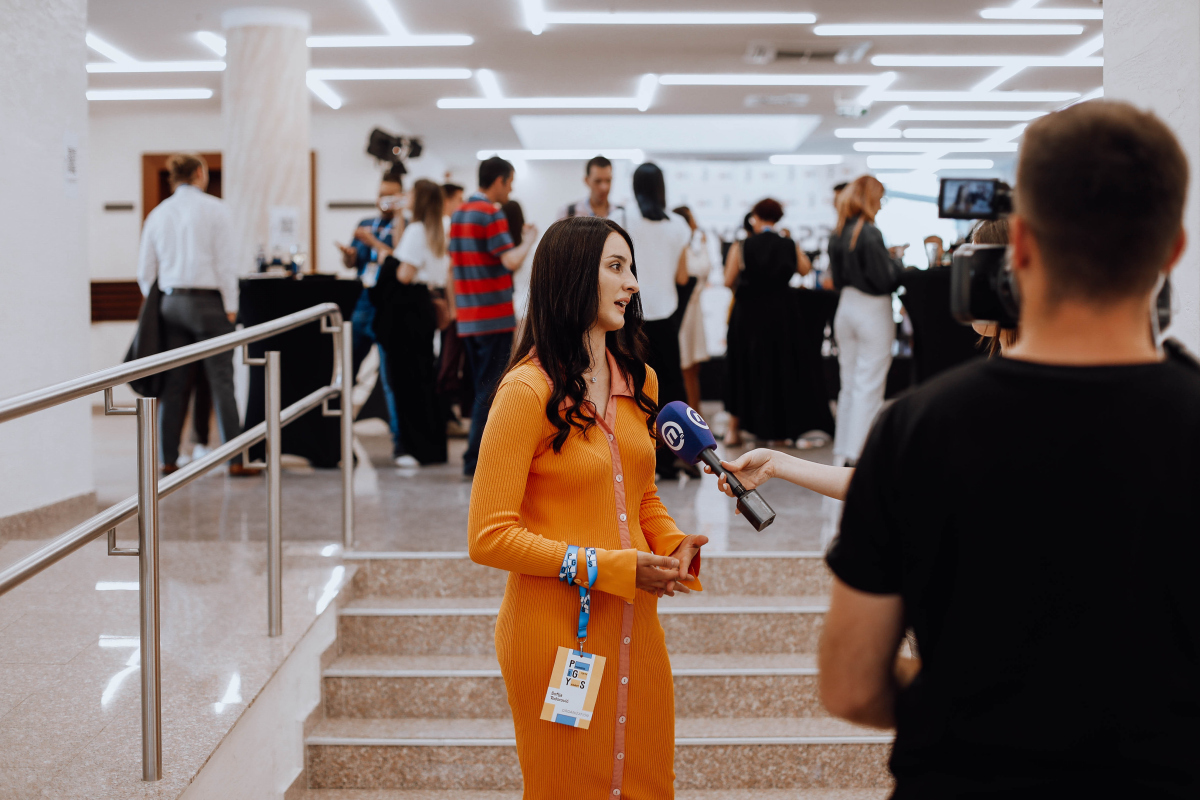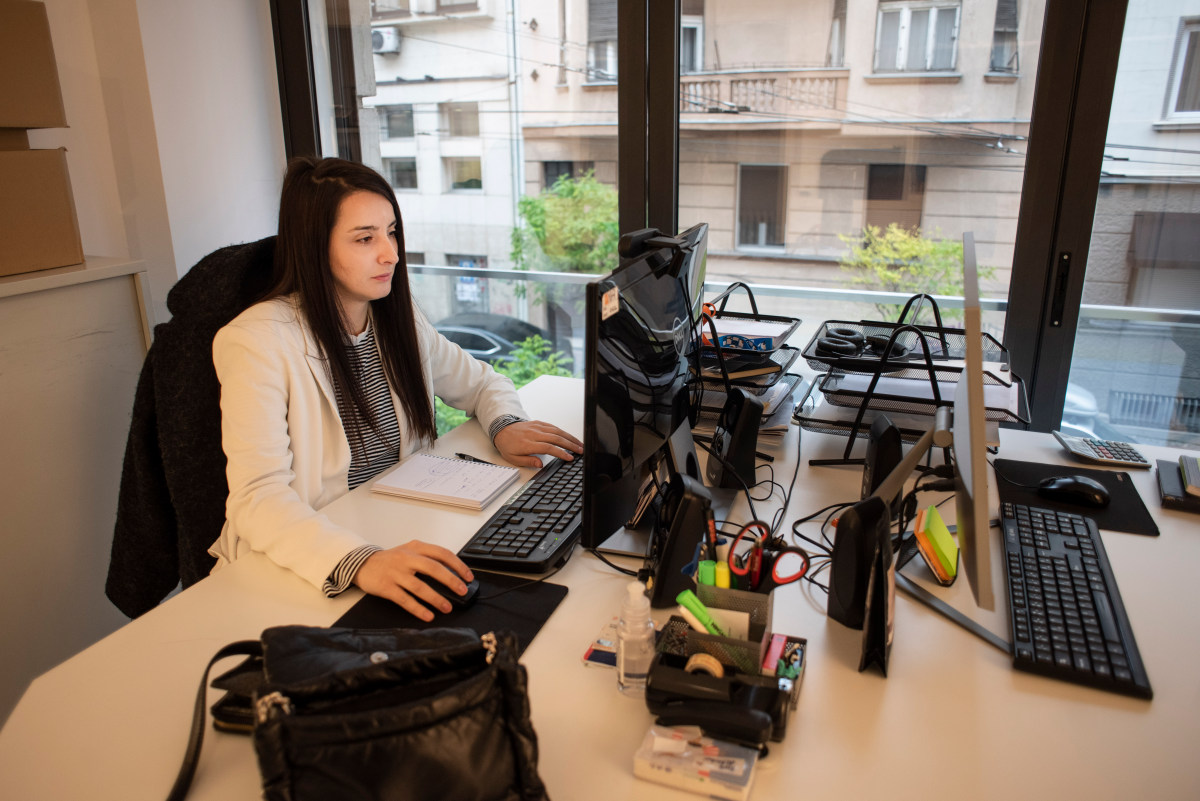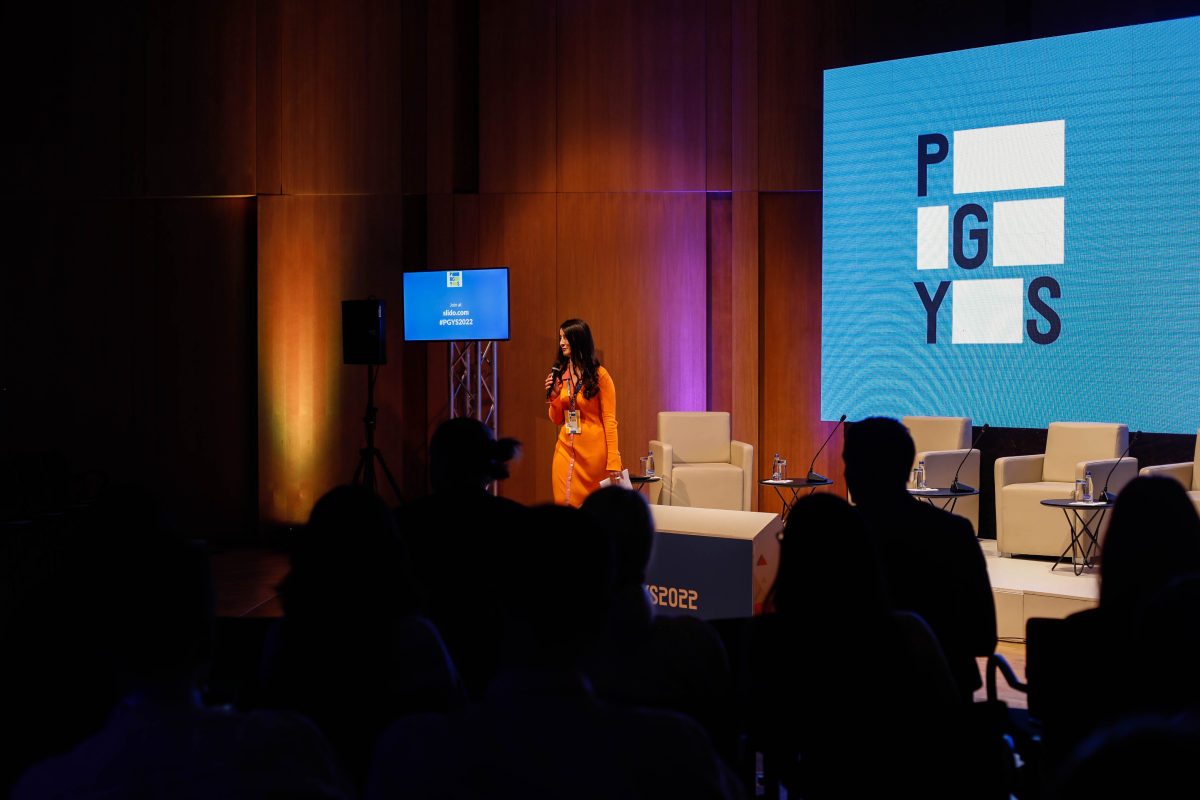That moment of refusing to accept injustice is precisely the moment when we regain the strength that someone in power has forcibly taken from us

This interview with Sofija Todorović, director of the Youth Initiative for Human Rights (YIHR), took place during a period when she faced challenges with state institutions, including being questioned at the border on multiple occasions. We believe in the importance of supporting individuals who advocate for civil rights and independent thought, which is why we offered Sofija the opportunity to share her perspective with our readers.
The public finds it difficult to keep track of how many times you’ve been detained at the border lately, and we can’t even imagine how hard it must be for you. Could you tell us what has happened and how you feel about it?
I believe even I often get confused when I have to list everything. The first time I was detained was on 6th July, for almost four hours, without any explanation, while my luggage was searched. I was told I would have a conversation with the commander; however, after several hours, they told me I could go. When I asked for a written document detailing my detention and the reasons behind it, I was told that such a document could not be provided at the border. I insisted repeatedly, but they refused, and eventually, I left because I had been there for too long and just wanted to leave. This was about ten days after the “Mirëdita, Good Day” festival, which deals with cultural cooperation between Serbia and Kosovo, was banned. At that point, I naively thought that this detention was an isolated incident, related to the fuss around the festival and that it wouldn’t become my routine. However, I was mistaken.
I don’t believe in absolute protection and safety, so a person needs to have a well-established support system
I’m still not entirely sure how I feel. When I crossed the border without any issues for the first time, about ten days ago, I felt immense relief, even happiness. But then I became worried because there’s something deeply troubling about feeling joyful that you’re no longer subjected to unlawful treatment or injustice, however, one classifies it.
It is noticeable that the authorities have been arresting and detaining dozens of different activists, as well as preventing foreigners from entering Serbia due to their activism or views. Are there similarities between all these numerous recent human rights violations?
I do see similarities. First, in almost all cases, the individuals involved, whether public figures or not, speak openly about social issues that are of great importance to our country or its relations with its neighbours. And that’s not a good message. This is not how a serious country should treat its citizens or well-meaning foreign nationals who may not necessarily share the views of some Serbian officials. In the case of Severina Vučković, who publicly shared the content of her conversation with the border police, as well as the questions she was asked during her detention, it’s clear that these are politically motivated decisions that are harmful to Serbia. Another similarity I see is that the aim was pure intimidation through the use of power, and an attack on freedom, which makes us free human beings—the freedom to think and to publicly express our critical views.
What can be done when the authorities and the state, who are supposed to protect human rights, are the ones violating them?
Resist, if there is the will and enough strength. I see salvation in that resistance, no matter how small and insignificant it may seem in the broader picture. I deeply believe that it is never in vain. For me, that moment of refusing to accept injustice is precisely the moment when we regain the strength that someone in power has forcibly taken from us.

I believe dignity is the most valuable thing we have as humans, but it is fragile, it breaks under pressure. And it is most vulnerable when you know you haven’t done anything wrong or illegal, yet someone treats you as if you have as if you are guilty just for existing. That’s when it’s crucial to hold on to your dignity, even though you’re scared because it’s normal to be scared. I also think it’s important to share your experience with someone, to reach out. There are still mechanisms in this country, both formal and informal, for different forms of protection or assistance. We can debate their effectiveness, but they do exist.
If individual cases like yours haven’t sparked strong public resistance and pressure on the authorities, how do you explain the lack of public response despite so many evident pressures?
In my case, and the case of my colleague from Kosovo, Jovana Radosavljević, public pressure paid off. The flags that appeared when our documents were scanned have been removed, or we have been taken off the list. However, it is concerning that we have not received any response from the institutions about what our case was really about. There’s no accountability being taken, and that’s not good because it means this could happen to anyone, at any time. I have initiated legal proceedings against the relevant institutions because the idea is to prevent such things from happening and to bring them to light. This kind of arbitrariness is bad for Serbia, and I still care about democracy and the rule of law, so I will do everything in my power to ensure that this case has some sort of conclusion.
If you, as someone from a human rights organisation, become a victim, who will protect you?
I believe that working in a human rights organisation comes with certain responsibilities and risks, especially in countries with authoritarian tendencies. Serbia is no exception. We must be aware of these risks. Awareness isn’t always easy, but it brings many good things and helps you build preventive practices and strategies for the worst-case scenario. I don’t believe in absolute protection and safety, so a person needs to have a well-established support system, which I have due to the nature of my work, and partly because of my legal education, which allows me to protect myself when necessary.
There is always a solution, there’s always something that can be done, but we don’t get out of situations like this overnight because we didn’t just wake up one morning in this kind of country
Perhaps “protection” isn’t the right word, since I didn’t protect myself from this situation, but that wasn’t possible because I wasn’t the cause—rather, it was an abuse of power. But I do know how to respond. You know how doctors get sick and need treatment too? Well, that’s what it’s like. My privilege is that through my work and activism, I’ve met a lot of amazing people and experts. When you are there for others, others are there for you, and that’s the strength of solidarity.
Unfortunately, serious issues like these have been happening continuously in our country for decades, but we also have numerous examples from around the world, not only in dictatorial regimes but also in Western democracies. How do you explain this?
Being a “Western democracy” is not a given; it’s something that can easily change if it’s not invested in and if we, as societies, make the wrong political choices. Just as everything can improve, everything can also deteriorate, even in the “West.” Many things were treated as a given, but that was never true. In Europe, we have a war that we’ve all “gotten used to,” and it’s no longer even treated as news. We are currently living in a unique global political context, with a crisis of democracy—not in terms of its technical aspects, but in terms of what democracy fundamentally needs to entail in order not to collapse. In Europe, for some time now, we have been witnessing the rise of the right, and the distribution of power in the European Parliament after the latest European elections reflects this. We’ll have to wait and see the outcome of the upcoming US elections for the picture to be complete.
What are your thoughts on the release of Julian Assange?
For me, it’s good news. I followed that case closely because it was important to me for several reasons. For me, it’s a story about free journalism and the public interest. Assange did what any brave person with integrity would have done in his place. Otherwise, how could we ever speak of state accountability if such actions are criminalised in the way they were attempted in his case? In the end, his legal fight for personal freedom was successful. I’m not sure such a case would have been possible anywhere other than in the West, where we can always find a thousand faults – that’s undeniable – but it would be wrong to deny certain basic facts.
Let’s return to Serbia. Who do you believe is most responsible for the latest wave of human rights violations, restrictions on movement, harassment, intimidation, persecution, and targeting (it feels like there’s no end to the list, unfortunately)?
As we are dealing with state organs here, which abuse their powers to arbitrarily restrict freedoms, we are talking about the responsibility of the state, which must stop such actions. Specifically, I am referring to the problematic actions of institutions. When it comes to targeting and persecution, we often see the media as a party that acts against the journalistic code of ethics and media laws, and this is often accompanied by statements from certain state officials who publicly “clash” with citizens. It shouldn’t look like this, and I’m sometimes afraid that we’ve grown too accustomed to it, and that most people no longer see the point of resisting but rather think about how to avoid finding themselves in that situation, instead of thinking about how to prevent it from being the situation in our country.
Is there a solution and a way out of such a situation, especially given the lack of the rule of law?
There is always a solution, there’s always something that can be done, but you don’t get out of such situations overnight because we didn’t just wake up one morning in this country in this condition. These are processes, and the downside of processes is that they can take time. There are ways to strengthen the rule of law; we, as citizens, can contribute both through our personal behaviour and public actions. I’m a little worried that sometimes it seems like everyone wants instant solutions, and that leads to disappointment and a loss of energy among people. It’s incredibly important to encourage non-violent behaviour and not stay silent on violence. I see violence – whether physical, psychological, or verbal, which is very present in our public discourse – as one of the main problems. I see the potential for change in building communities, regardless of how small they are or what their primary goal is, but communities where people come together, guided by principles of support, understanding, and empathy. If we don’t have state institutions that will effectively respond to injustice, let’s do everything we can to reduce it, each in our yard, slowly but surely…

This interview was originally published in the October edition of Diplomacy&Commerce magazine, issue #99.
Interview conducted by: Dragan Nikolić
Photos by: YIHR Archive